
Mission Statement
Conserve, steward, and advocate for the unique rural landscape of the Eastern Shore.

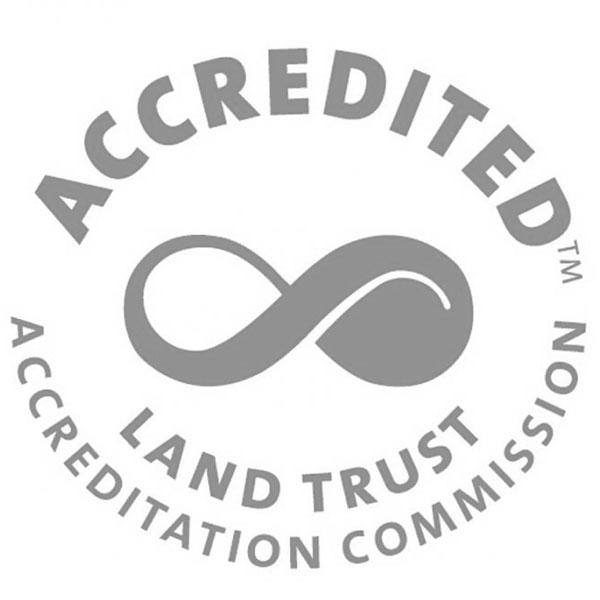

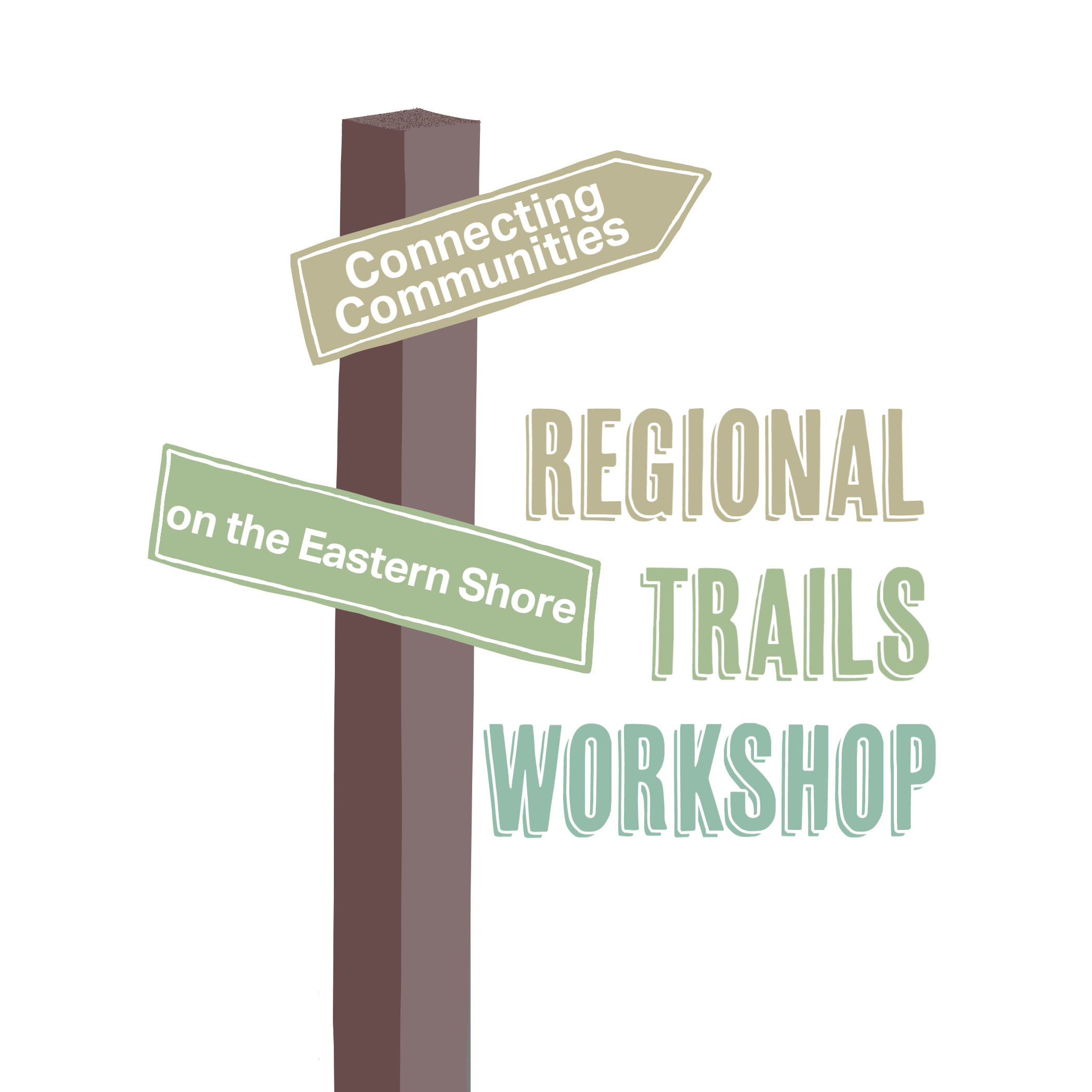
The Eastern Shore Land Conservancy invites you to a follow up meeting on the topic of an Eastern Shore Regional Trails network. This meeting will focus on what comes next after our Trails Workshop in April 2022 (details found at the bottom of the page). We will take what we learned about creating a regional trail vision and channel the great energy that came out of that workshop into a discussion on how we build it out.
Please register below by Friday, July 29th, 2022. Like the workshop, we will have a virtual option to join. If you respond as attending in person, you will receive an email with lunch options in the beginning of August.
Here is a link to a OneDrive Folder where we are keeping documents from the previous workshop.
Thank you for your continued interest in trails. Looking forward to continuing this discussion with you.
Trails improve the quality of life for all who use them. The benefits offered by trails is paramount – from equitable access to outdoor recreation at parks and open spaces, a viable alternative means of transportation, a valuable tool for economic development and tourism destination, and a means of improving the physical and mental health of residents and visitors. Trails also create a strong return on investment for any local and regional government.
Unfortunately, there are not many trails on Maryland’s Eastern Shore. Very few exist in a handful of municipalities or parks, but each one generates immense value in their nearby communities and throughout the Eastern Shore. Yet, their value is not realized as they are disconnected and often times hard to access.
At this workshop, we will hear from an array of outstanding panelists and speakers, speaking on how best to plan a trail, how to leverage resources and networks available for trail development and maintenance, and how communities benefit from these connections.
The main goal of this workshop is to create a Vision for a regional trail network for Maryland’s Eastern Shore.
Introduction (10:00 am) | Owen Bailey
Keynote Speaker (10:05 – 10:30 am) | David Brickley
Panel #1 –Trail Planning and Resource Sharing (10:35 – 12:05) | Dan Hudson
Lunch – boxed lunch provided (12:10 – 12:50)
Panel #2 – Forming a Regional Trail Vision (1:00 – 2:30) | Jeff Ciabotti
What Comes Next? – How do we follow up on creating a Regional Trail Vision? (2:30 – 3:00) | Owen Bailey
Wrap-Up
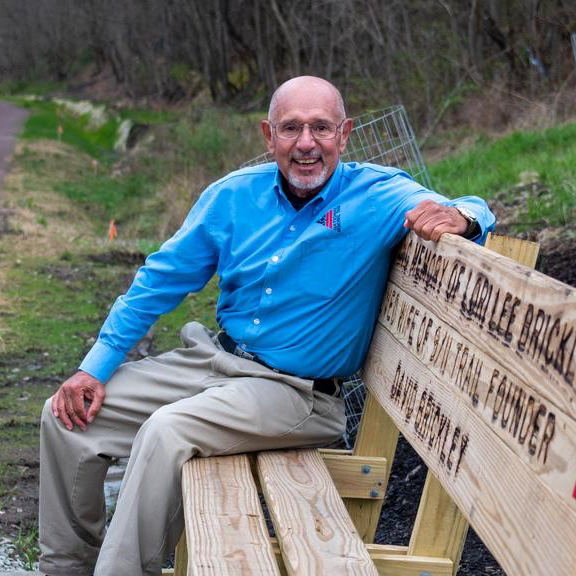
David Brickley
After tours of duty in the Middle East, and then serving in Vietnam where he was awarded the Bronze Star, Captain David Brickley came to Northern Virginia in 1970 where he was the Defense Intelligence Agency’s desk officer for the Arabian Peninsula through 1973. He subsequently resigned his military commission and served as the Deputy County Executive for Prince William County. In 1975, at age 31, he was elected to the Virginia House of Delegates, serving for 22 years through 1998. His many leadership positions included chair of the Health, Welfare & Institutions Committee, vice chair of the House Finance Committee, subcommittee chair for State Parks, and chair of the Northern Virginia Commuter Rail Committee.
His legislative accomplishments included sponsor and chair of the Virginia Railway Express, sponsor of the Woodrow Wilson Bridge Compact, sponsor of Virginia’s Welfare Reform, and sponsor of the statewide elected school boards legislation to list just a few of his many legislative initiatives.
In 1998 Delegate Brickley went from the legislative to executive branch serving under Governor Jim Gilmore as director of the Virginia Department of Conservation and Recreation. His leadership earned the Department the national Gold Medal Award in 2001 as the Best Managed State Park System in America. He left state service in 2002 and has spent the following years speaking and advocating for trails, greenways and conservation. He serves on many boards including as a federal commissioner with the C&O Canal National Historical Park.
His love of trails included purchasing a 16-mile abandoned railroad corridor to save it from development, and with support from a dedicated core of volunteers, transformed the corridor into the Dahlgren Railroad Heritage Trail in King George County, Virginia. It is part of the Potomac Heritage National Scenic Trail.
David Brickley is also the founder and now President-Emeritus of the September 11th National Memorial Trail Alliance which developed with strong citizen and governmental support the 1,300-mile September 11th National Memorial Trail connecting the three 9/11 sites in New York City, the Pentagon and Flight 93.
David Brickley lives in Woodbridge, Virginia and is a retired attorney, having graduated from Pennsylvania State University and the George Mason University School of Law. He can be contacted at brickleylaw@comcast.net or 911trail@comcast.net
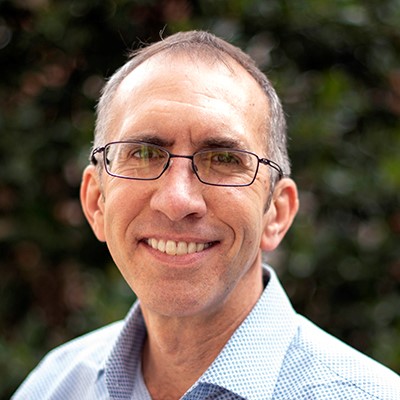
Jeffrey Ciabotti
Jeff is Toole Design’s Trails and Greenways Practice Lead and Mid-Atlantic Deputy Director of Planning. He has spent more than 25 years in planning, education, and advocacy, focusing on creating healthy, sustainable communities through developing networks of trails, greenways, and connected corridors.
Jeff has led transformational projects for a variety of clients across the United States from complex local connectors to large-scale regional initiatives. He was formerly the Vice President for Trail Development at Rails-to-Trails Conservancy, and he is a nationally recognized expert on trail and greenway development who has presented numerous workshops, trainings, and speaking engagements.
Jeff understands all aspects of a project’s evolution, including policy development, master planning, design, prioritization, funding, and management. Jeff continues to shape the evolution of trails as essential community assets through his innovative work and national leadership.

Nate Evans
Nate Evans is an Active Transportation Planner at the Maryland Department of Transportation where he provides planning guidance on bicycle and pedestrian issues and manages the Kim Lamphier Bikeways Network Program. Having over 25 years’ experience planning and designing transportation projects in the public, private and non-profit sectors, Nate led MDOT’s recent transition to bicycle level of traffic stress (LTS) to help better plan bicycle trips and projects. Nate lives in Perry Hall with his wife and kids where he mountain bikes extensively.
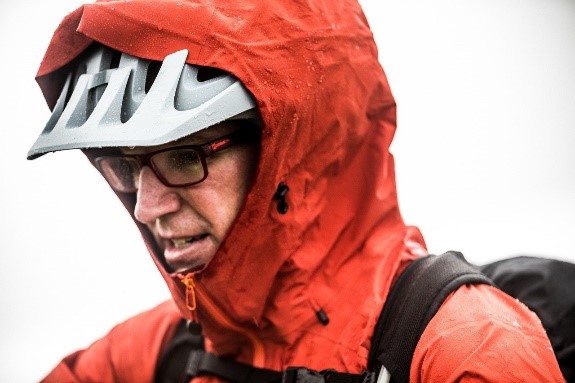
Dan Hudson
Dan joined the staff of Maryland Park Service in 2013 as “Trail Manager” – a new position to help the 21 State Park managers and their staff with maintenance of existing trails and development of new routes in State Parks. Prior to joining DNR, Dan worked seven years for the International Mountain Bicycling Association (IMBA) in their Trail Solutions program, where he had an emphasis in Trail Planning and Construction/Project Management.
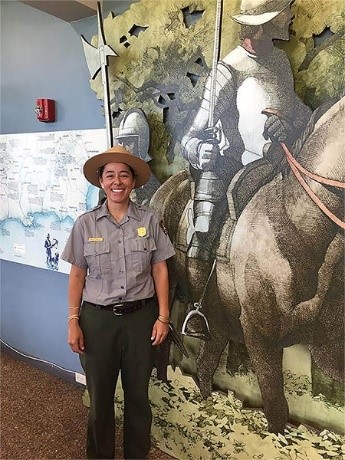
Natalia Sanchez
Natalia Sanchez is an Outdoor Recreation Planner with the National Park Service’s (NPS) Rivers, Trails and Conservation Assistance (RTCA) program. She has a background in historic preservation, urban planning, community and youth engagement, event planning, and connecting new and diverse audiences with outdoor recreation opportunities. Natalia is excited about leveraging the power of collaborative efforts by engaging with community groups, nonprofits, tribes, state and local governments to create access to the great outdoors; while fostering significant and long-lasting connections with diverse populations and the future of park stewards and advocates.
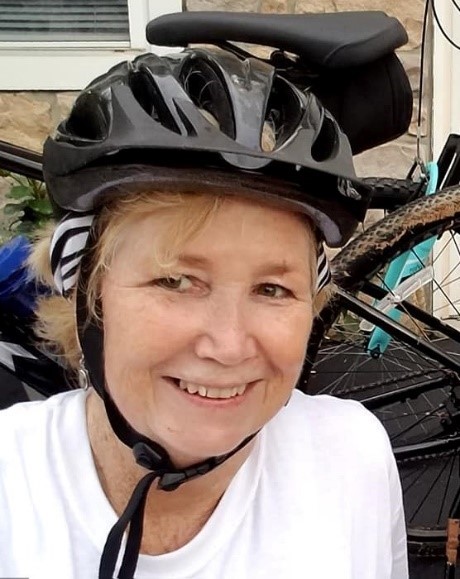
Patricia (Patti) M. Stevens, M.P.A.
Patti Stevens is the founding co-chair of the Worcester County Bike and Pedestrian Coalition. The Coalition works to improve and expand safe places to ride and walk for those who live, work, and visit the Eastern Shore. In July 2020 Patti was appointed by Governor Hogan to represent the Eastern Shore on the Maryland Bike and Pedestrian Advisory Committee. Her focus is to make safe connections for active transportation between communities a priority on the Eastern Shore.
Patti moved to Ocean Pines, Maryland in 2019 after retiring from Fairfax County Government where she was the Director of the Office of Public Private Partnerships for 12 years and Regional Director for Human Services for 5 years. She has served on the boards of nonprofit and civic organizations, currently chairing Ocean Pines Recreation and Parks Advisory Committee. Patti and her husband Pat Trate enjoy playing pickleball and exploring in their RV and on bikes.

Cyndi Steiner
Cyndi is a former executive director of the New Jersey Bike & Walk Coalition. Her most notable advocacy wins include the pursuit of Norfolk Southern Railroad for the Essex-Hudson Greenway, $90 million in safety improvements for bike riders to the George Washington Bridge, and passage of key state legislation in support of pedestrian and bike rider safety. She has also helped launch over a dozen community advocacy organizations. She is currently an advocacy advisor to Talbot Thrives.
Other roles Cyndi has held are Vice Chair of the Board of Directors of Bike New York, member of the Executive Committee of the New Jersey Bicycle and Pedestrian Advisory Council of NJDOT, and Advisory Board Member of the September 11th National Memorial Trail Alliance.
Prior to her work in bicycle and pedestrian advocacy, Cyndi had a twenty-year career in corporate project management and information systems management with Ernst & Young LLP.
Cyndi holds an MS degree from Stevens Institute of Technology and a BS degree from Cornell University.
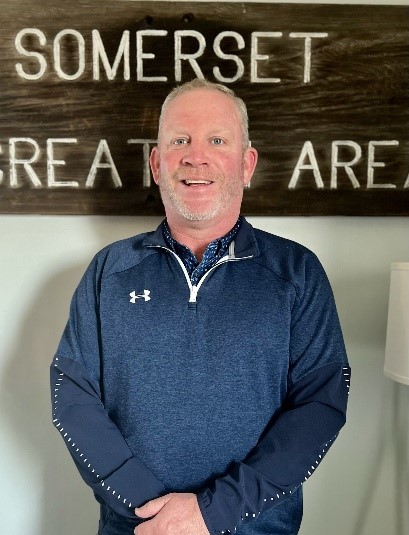
Serving as Somerset County’s Director of Recreation, Parks and Tourism since 2012 Clint has been committed to improving the counties park system, expanding recreational opportunities and highlighting the amenities that make Somerset a great place to live, work and play. SCRPT manages 11 county parks, a visitor center, Great Hope Golf Course and the newly constructed Terrapin Run Recreational Trail. Additionally, he counts the creation of Somerset County’s Original Trail Mix as a key component to providing access to those seeking to see the county on foot, bike or canoe while highlighting the natural beauty of Somerset.
Clint lives in Crisfield with his wife Cindy, they have 3 children Caroline (21), Cole (18) and Cate (14) and a spoiled Pointer, Winnie.
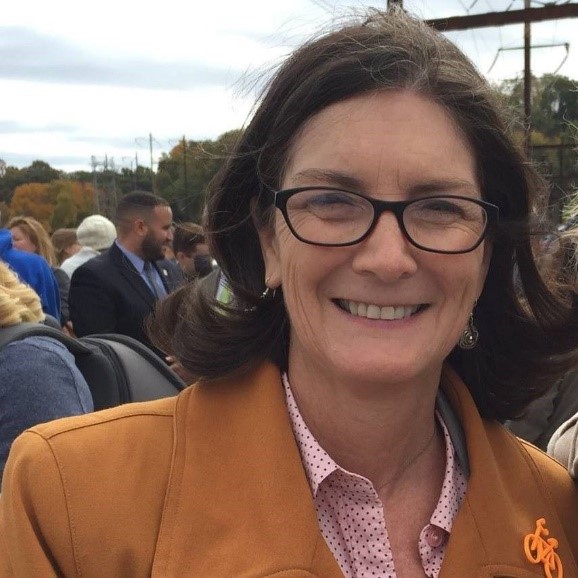
Sarah Clark Stuart
Sarah Clark Stuart’s 30+year career has focused on environmental and transportation advocacy and philanthropy. As Executive Director of the Bicycle Coalition of Greater Philadelphia, she develops strategic campaigns to advance high-quality connected regional trail and bikeway networks, Vision Zero policies, and active transportation infrastructure to make streets and neighborhoods safer, and engagement activities to encourage more people to use a bicycle, walk or transit for everyday destinations. Since 2009, Sarah has worked with colleagues to catalyze the build out of the Circuit, Delaware Valley’s 800+ mile regional trail network. Sarah chairs the Circuit Trails Coalition and PennDOT’s Pedalcycle and Pedestrian Advisory Committee. She was a member of Philadelphia’s Park and Recreation Commission from 2009-2015. She holds degrees from Pomona College and Yale University and lives in the Logan Square neighborhood of Philadelphia.
Copyright © Eastern Shore Land Conservancy.
All rights reserved.